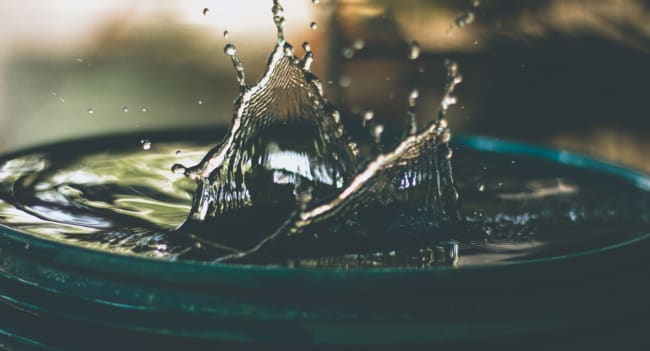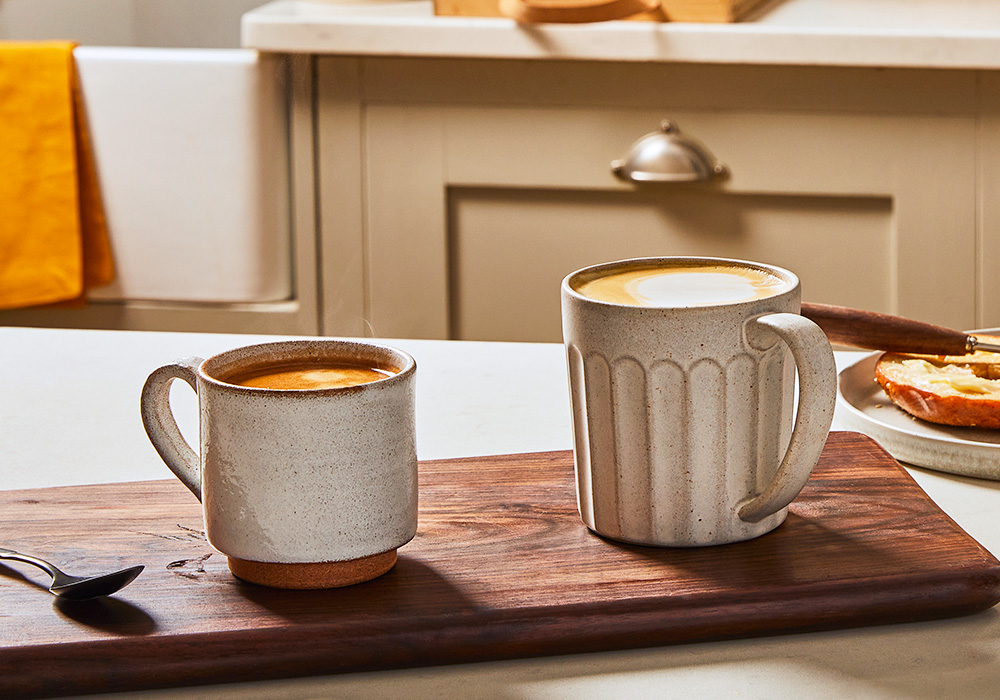As obsessed as we are with sourcing the very best coffee beans, water makes up about 98% of a cup of coffee. The quality of the water you use can have a big impact on the taste of your brew. But what’s the best type of water for making coffee?
SCA recommendations
The Specialty Coffee Association (SCA) recommends using water with the following characteristics:
Total dissolved solids (TDS): 150-175 parts per million (ppm)
Calcium hardness: 50-175 ppm CaCO3
Alkalinity: 40-75 ppm CaCO3
pH: 6.5-7.5
Unless you’re very technically minded, these measures mean absolutely nothing. So let’s take a closer look at the elements of water that affect the taste of your brew.
TDS refers to the total amount of dissolved minerals in the water, including calcium, magnesium, and sodium. The SCA recommends using water with a TDS of 150-175 ppm because this level of minerals helps to extract the full flavour of the coffee beans.
Calcium hardness is a measure of the amount of calcium and magnesium in the water. The SCA recommends using water with a calcium hardness of 50-175 ppm CaCO3. This level of minerals helps to create a balanced flavour in the coffee.
Alkalinity is a measure of the water’s ability to neutralise acids. The SCA recommends using water with an alkalinity of 40-75 ppm CaCO3. This level of alkalinity helps to buffer the acidity of the coffee and create a smoother flavour.
pH is a measure of the water’s acidity or alkalinity. The SCA recommends using water with a pH of 6.5-7.5. This is a neutral pH that will not affect the flavour of the coffee.
If you’re not sure what type of water you have at home, you can test it using a water test kit. You can also contact your local water utility to find out the mineral content and pH of your tap water. There are also several websites where you can check the water hardness in your area.
But with all that in mind, what do you do with that information?
Here are the roles certain elements play:
- Calcium helps to extract flavour from the coffee grounds and put it into your cup.
- Magnesium helps to bind to certain flavour compounds.
- Bicarbonate helps to keep the water’s acidity and other properties balanced. If you have a balanced acidity in your water, your brew will stay true to the acidity of the coffee itself, rather than throw off the profile.
Let’s break down some options for different types of water and what kind of effect they will have on your brew.
Types of water for coffee brewing
Filtered water
Filtered water is a great solution for making the best coffee at home. It reduces the waste you’d get from buying bottled water.
If you have a filter tap in your plumbing, that works brilliantly. Most people don’t, and filter jugs are a fairly budget friendly option – a Brita filter can be replaced every other month. There are also more sustainable options with a refillable cartridge.
Mineral water
You need a bit of mineral in your water to give your coffee the best flavour, but too many minerals in the water essentially make it hard – and water that’s too hard mutes the flavour of the coffee.
That being said, not all mineral waters are made the same. For example, it’s said that supermarket own-brand bottled water contains fewer minerals, so as well as being cheaper than their branded counterparts, they actually perform better in a brew.
Tap water
So what if you don’t want to use bottled or filtered water? For whatever reason, it might not be an option for you. Here’s what’s in tap water, and the effects this may have on the flavours in your coffee.
Magnesium in coffee brewing enhances sharp, fruity flavours, while calcium emphasises heavier, creamier notes.
Iron and copper can leach into mains water from aged pipes and water mains, imparting a metallic taste to coffee, even in small quantities. Both minerals are present in UK tap water, so filtering is recommended.
Depending on the area where you live, you may have naturally softer water than in other parts of the country – in this case, you have an advantage and straight-from-tap water is likely to be pretty good for coffee.
A good rule of thumb is that your tap water shouldn’t have a harsh or metallic taste and it shouldn’t have an odour. Everyone gets used to the taste of their own tap water to an extent – but if it’s noticeably not nice if left to sit for a few minutes, it’s probably going to negatively affect your coffee, and we’d recommend filtering.
Limescale and machine maintenance
If you have any kind of coffee machine at home, it’s important to also note that it’s crucial to descale, especially if you live in a hard water area. A calcium build-up not only affects the taste of your coffee – in espresso machines, it can also affect your espresso pressure, making for an inconsistent pull.
Distilled water
Is distilled water good for coffee? We understand why you may wonder this – it seems like a good option. But you should avoid distilled water. Distilled water is too pure and can extract too much flavour from the coffee beans, resulting in a weak and bitter cup of coffee. Not a good combo, in our opinion!
Softened water
Avoid softened water. Softened water is too high in sodium, which can give your coffee a soapy taste.
Takeaways
Here’s the TLDR;
- A good rule of thumb is that if your water doesn’t taste good on its own, chances are it’s not going to get the best out of your coffee beans.
- Filtered water is the best option for coffee brewing – just ensure it doesn’t filter out too many minerals.
- It’s a good idea to check out the specs for the water in your area. If you feel like you’re just not making the best brews at home compared to the coffee shop, it may not be a mark of your barista skills – swapping your water could be what’s needed to take your home-brewed coffee to the next level.







